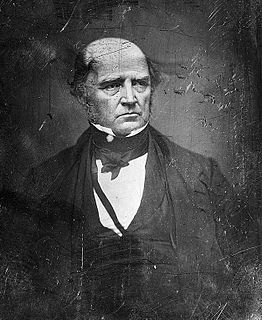A Quote by Charles Darwin
It is not the conscience which raises a blush, for a man may sincerely regret some slight fault committed in solitude, or he may suffer the deepest remorse for an undetected crime, but he will not blush... It is not the sense of guilt, but the thought that others think or know us to be guilty which crimsons the face.
Related Quotes
Every man, however hopeless his pretensions may appear, has some project by which he hopes to rise to reputation; some art by which he imagines that the attention of the world will be attracted; some quality, good or bad, which discriminates him from the common herd of mortals, and by which others may be persuaded to love, or compelled to fear him.
Make friends with guilt. Guilt is a beautiful emotion that alerts us when something is wrong so that we may achieve peace with our conscience. Without conscience there would be no morality. So we can greet guilt cordially and with acceptance, just as we do all other emotions. After we respond to guilt, it has done its job and we can release it.
I have not loved the world, nor the world me, but let us part fair foes; I do believe, though I have found them not, that there may be words which are things, hopes which will not deceive, and virtues which are merciful, or weave snares for the failing: I would also deem o'er others' griefs that some sincerely grieve; that two, or one, are almost what they seem, that goodness is no name, and happiness no dream.
The use of knowledge in our sex (beside the amusement of solitude) is to moderate the passions and learn to be contented with a small expense, which are the certain effects of a studious life and, it may be, preferable even to that fame which men have engrossed to themselves and will not suffer us to share.
Every man is prompted by the love of himself to imagine that he possesses some qualities, superior, either in kind or degree, to those which he sees allotted to the rest of the world; and, whatever apparent disadvantages he may suffer in the comparison with others, he has some invisible distinctions, some latent reserve of excellence, which he throws into the balance, and by which he generally fancies that it is turned in his favour.
We cannot assume the injustice of any actions which only create offense, and especially as regards religion and morals. He who utters or does anything to wound the conscience and moral sense of others, may indeed act immorally; but, so long as he is not guilty of being importunate, he violates no right.
There may be a time in life when one is tired of everything and feels as if all one does is wrong, and there maybe some truth in it- do you think this is a feeling one must try to forget and to banish, or is it 'the longing for God,' which one must not fear, but cherish to see if it may bring us some good? Is it 'the longing for God' which leads us to make a choice which we never regret? Let us keep courage and try to be patient and gentle. And not mind being eccentric, and make distinction between good and evil.




































